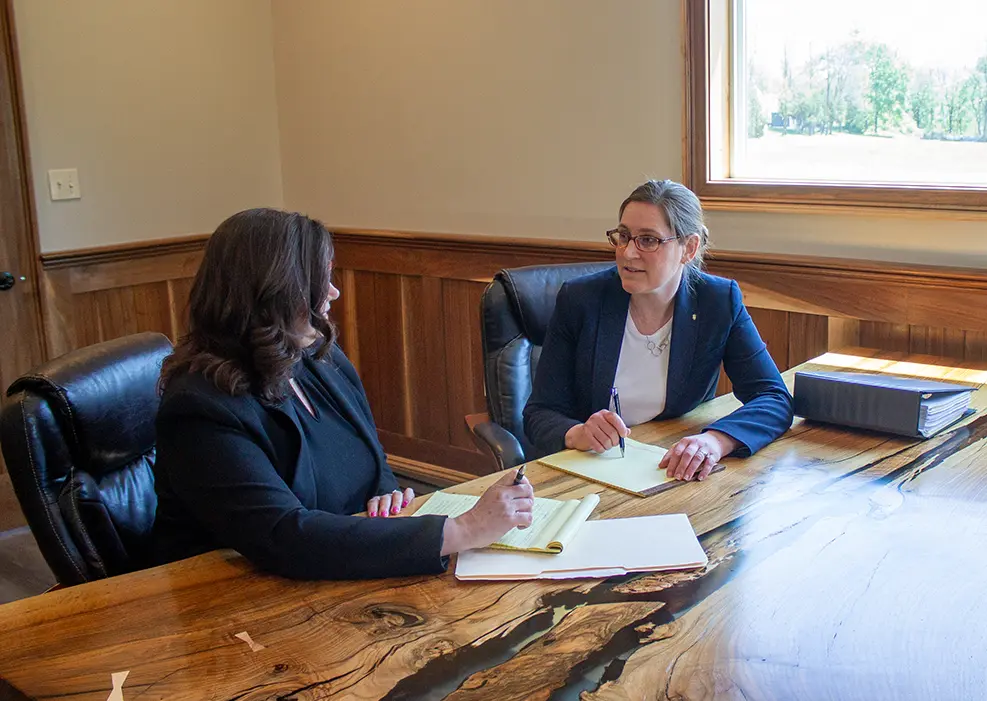
Adoption
In the United States, almost 7 million people have been adopted. Adoption is a beautiful and loving thing to do for a child, but the process can be complex. Hiring an adoption attorney, like the ones at Cornerstone Law Firm, can ensure that you have the proper paperwork filed, that you meet the eligibility criteria, and that you are legally ready to add to your family.
Adoption in Pennsylvania
Pennsylvania’s adoption process is lengthy and involves several steps. Those steps include:
- Submitting an Application—If you are interested in adopting a child, you must submit an application to be considered. This will include information about your family, finances, and lifestyle. You will need to undergo a criminal background check and abuse clearance, and you may be required to provide personal references as well.
- Doing a Home Study—After you have applied for adoption, a social worker will visit your home to inspect it and make sure it is safe for a child. The social worker will also interview you, your spouse, and other family members at this time.
- Meeting the Child—If you are adopting through an agency (whether state or private), you will be matched with a child at this stage. You will meet the child while under the supervision of the social worker.
- Placement—After a child has been matched and you are ready to see if you are a good fit, the child will be placed with you for at least 6 months. The social worker will conduct regular monitoring to see how the relationship between your family and the child is progressing.
- Filing an Intent to Adopt—30 days after placement, you must file an Intent to Adopt. The placement period will extend beyond this 30 days.
- Filing a Petition for Adoption—After placement has ended and all other reports have been filed, you may file a petition for adoption.
- Attending an Adoption Hearing—After petitioning for adoption, you will need to attend an adoption hearing before a judge. This hearing will include testimonies from you, the social worker monitoring your case, and the child (if the child is over the age of 12). The judge will then decide whether or not to approve your adoption. Upon approval, you will receive a certificate of adoption and a new birth certificate for the child with the adoptive parents listed.
As you can see, the process can be quite time consuming and involves lots of paperwork. An experienced family law attorney can help you file the proper paperwork at the proper times to keep the process moving and ensure that nothing gets missed. If you’re interested in adopting a child, call the adoption attorneys at Cornerstone Law Firm for help.
Eligibility
In Pennsylvania, you may adopt a child if you are married or single. While different adoption agencies may have different requirements, the state requires you to be at least 21 years old. You will not be permitted to adopt a child if you have been convicted of any felonies related to drugs or alcohol in the last 5 years, have committed child abuse, or have committed any violent or sexual crimes.
Types of Adoption
There are several ways to adopt a child. Those include:
- Private adoption agencies—These are most commonly used when a couple or individual wishes to adopt a newborn.
- State agencies—These are most commonly used when a couple or individual wishes to adopt a foster child or a child with special needs.
- Adopting a relative—Whether you are adopting a stepchild, a niece, a nephew, or a grandchild, the majority of adoptions in the U.S. involve adopting a relative.
- International adoptions—These are becoming less common as other countries increase adoption restrictions, but you can adopt a child from another country.
- Adult Adoption—Pennsylvania allows anyone over the age of 18 to adopt anyone else over the age of 18, as long as both parties consent. Check here for more on adult adoption.
Open Adoptions v. Closed Adoptions
When you are adopting a child from outside of your family (i.e. not a relative or stepchild), there are two different kinds of adoption you can get: an open adoption or a closed adoption.
An open adoption is one in which the biological parents and adoptive parents exchange information and/or maintain some form of contact during, and sometimes, after the adoption process. Open adoptions are becoming more and more common. Depending on the paperwork in place, an open adoption can be terminated by the adoptive parents at any time. How much contact the adoptive parents have with the biological parents will differ for each family.
A closed adoption is one in which there is no contact between biological parents and adoptive parents. This is most common when you are adopting internationally or adopting a newborn from a private agency. While there is no contact and, typically, no identifying information exchanged, some closed adoptions provide non-identifying information, like medical histories and information about ethnic backgrounds.


Adopting a Relative
The process for adopting a relative in Pennsylvania is similar to the process of adopting a child from outside of your family. Most adoptions occur within the family. Sometimes biological parents pass away before the child can care for themselves, so a relative will step in to fill that role. Sometimes a biological parent is too young or otherwise unfit to take on the responsibility of a child. Whatever the case may be, Pennsylvania allows for adopting relatives.
Grandparent Adoption
The adoption process looks more or less the same when a grandparent wants to adopt a grandchild. The biggest difference is that the grandparent has some connection to the biological parents. A grandparent must receive consent from the grandchild’s biological parents. If the biological parents are not involved, cannot consent, or do not consent, a grandparent will need a court to terminate the parental rights of the biological parents before the adoption can proceed.
Stepparent Adoption
Adopting a stepchild can be a great way to further blend an already blended family. Unlike other types of adoption, the process of adopting a stepchild is a little less involved. You must have consent from the biological parents—both your spouse and your spouse’s co-parent. If there is no known co-parent or the biological parent has passed away, you will only need consent from your spouse. If the co-parent is still involved, they will need to terminate their parental rights in order for you to adopt the child. Petitions still need to be filed and an adoption hearing will still need to be had, but there is no required home study or post-placement visitation.
If you are looking to adopt a child, contact the family law attorneys at Cornerstone Law Firm. We can help you file paperwork on time and present your case during an adoption hearing.
Adopting through Foster Care
Providing a home for children in need is a wonderful thing to do, and it’s easy to see how you might become attached to a child that you have fostered. Unlike other forms of adoption, adopting a foster child can be a more complex process. Along with the other steps for adoption, Pennsylvania requires that the biological parents’ parental rights are terminated before an adoption can take place. The fostering system is set up to reunite families when possible, so biological parents may not have given consent to have their children placed for adoption and may not want to give up their parental rights. These cases vary depending on the circumstances behind why the child was placed into foster care, but it will ultimately come down to what is in the best interest of the child. An experienced family law attorney can help you make your case and provide legal guidance during your adoption process.
International Adoptions
International adoption requirements will differ from country to country and can be more complex than when adopting domestically. Some general requirements include:
- Meeting the foreign country’s criteria—Most other countries want adoptive parents to be over a certain age, to be married, and to have no criminal record.
- Doing a home study—Similar to domestic home studies, foreign countries want to ensure adoptive parents can provide a safe home for a child.
- Obtaining clearances—While some countries may only require a domestic background check, others will require you to obtain clearances from their country as well.
- Entering into an adoption agreement—The adoptive parents and the foreign country must enter into an adoption agreement that lists out terms and agreements for the adoption.
- Receiving an adoption decree—The foreign country must issue an official adoption decree from its court system to give custody to the adoptive parents and clear them to bring the child to the United States.
- Completing immigration paperwork—Once you have received custody of the child from the child’s country of origin, you must file proper immigration paperwork to allow the child to stay in the United States.
- Meeting post-adoption requirements—Some countries will require adoptive parents to make reports after the adoption to ensure the child is receiving proper care.
Meeting with an experienced family law attorney can help to smooth the process of adopting internationally. Contact Cornerstone Law Firm about your case today.

